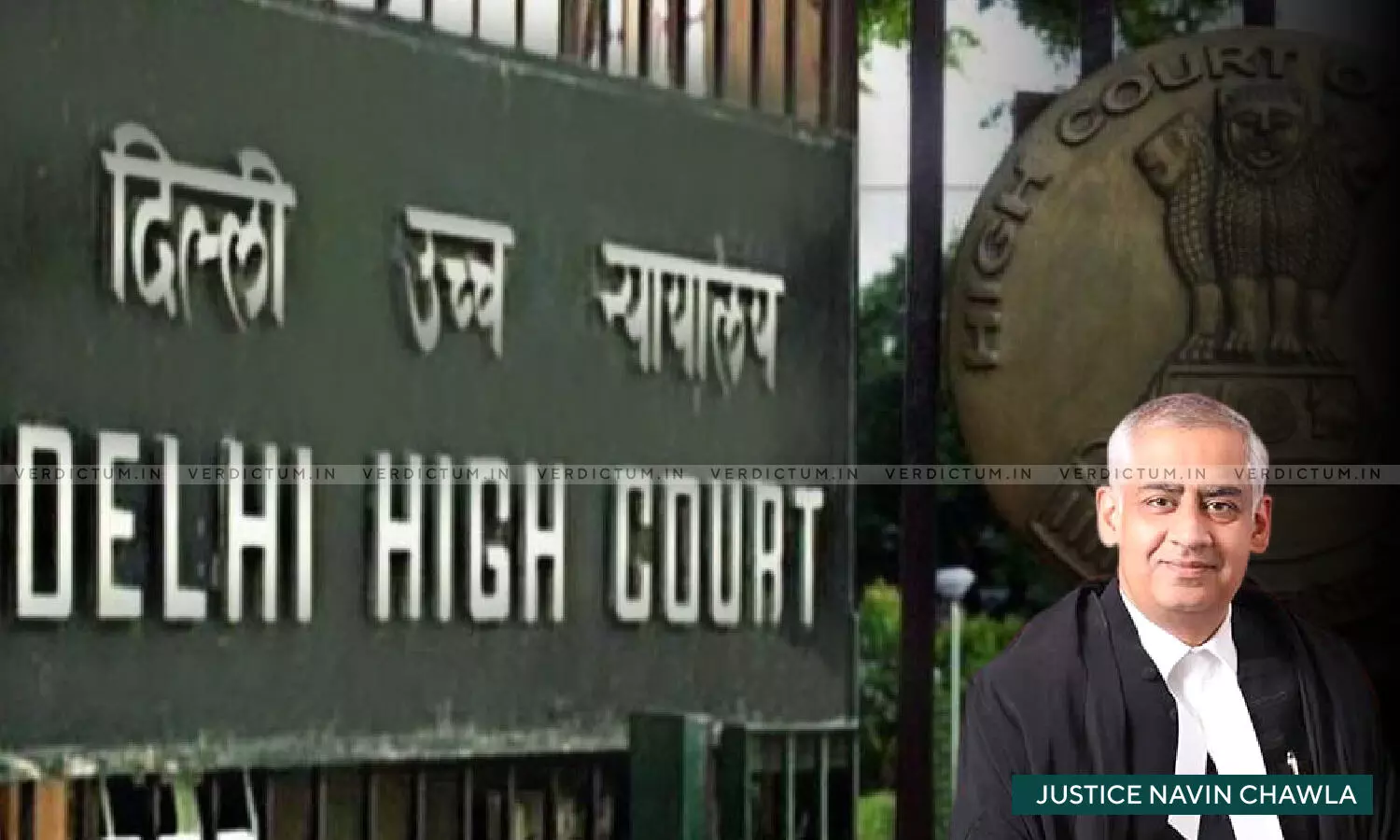
Settlement Agreement Terms Must Not Be Read As A Statute; Intention To Be Gathered From The Terms Of Agreement As Whole: Delhi HC
 |
|The Delhi High Court has observed that the terms of a settlement agreement are not to be read as a statute and the intention of the parties is to be gathered from the terms of the agreement as a whole.
The Bench of Justice Navin Chawla held, “No doubt the Settlement Agreement between the parties states that it is “Upon the said payment” that the JD shall “sign and execute any and all documents, papers and deeds required to give effect to the terms of this Agreement including the Dissolution Deed”, the terms of the Settlement Agreement are not to be read as a statute. The intention of the parties is to be gathered from the terms of the Agreement as a whole. It was the intent of the parties that the DH shall pay Rs. 2 crores to the JD and JD shall walk out of the partnership. The JD was also to sign all documents that may be required by the DH to give effect to the Settlement terms and to safeguard his interest. There were therefore, reciprocal promises, with each to be performed simultaneously and by the JD even in future.”
Advocate S.K. Maniktala for the Decree Holder while Advocate Manali Singhal appeared for the Judgment Debtor.
A suit was filed in 2005 praying for a decree of dissolution of a partnership firm named M/s Hotel Marina, which was decreed in terms of the Settlement Agreement in 2006, the parties have spent the next 18 years trying to execute the said decree.
As a brief background, the Decree Holder (‘DH’) No. 2 and the Judgment Debtor (‘JD’) were related to each other as father-in-law and daughter-in-law. They both had 8% each share in the partnership firm M/s Hotel Marina-Decree Holder No. 1. The JD filed a Suit praying for the dissolution of the Partnership Firm and rendition of its accounts. The said Suit was settled between the parties and in pursuance of the said settlement, they moved a joint application under Order XXIII Rule 3 of the Code of Civil Procedure, 1908 (‘CPC’), praying for the Court to pass a decree in terms of the said Settlement Agreement.
It was submitted by the counsel for the JD that the Execution Petition is liable to be dismissed as the DH was to pay a sum of Rs.2 crores to the JD on or before March 3, 2006. The DH has admittedly failed to do so. She submitted that it was only on April 24, 2006, that is after the date of payment had already passed, that the DH filed an application before the Court seeking permission of the court to deposit the said amount of Rs.2 crores in the Court. She submitted that therefore, the DH having not made the payment within the time stipulated in the Decree, is not entitled to seek the execution thereof.
The Court recorded two-fold objections of the JD: a) That the DH has failed to pay the amount of Rs.2 crores to the JD on or before 30.03.2006, and is therefore not entitled to seek execution of the decree; and, b) That the JD had agreed to receive the amount of Rs.2 crores only as against the value of her 8% share held in the Partnership Firm and not towards the amount standing to the credit of the JD in her capital account maintained by the Partnership Firm.
The Court relied on Section 51 of the Indian Contract Act and said, “Applying the above provisions to the facts of the present case, it is to be noted that the Settlement Agreement/Decree contained a reciprocal promise, wherein the DH was obliged to pay a sum of Rs.2 crores to the JD on or before 30.03.2006 and upon the said payment, the JD was inter alia to sign and execute any and all documents/papers and deed required for giving effect to the terms of the agreement, including the Dissolution Deed. While the DH was, as noted hereinabove, ready and willing to perform his obligation of making the payment of Rs.2 crores to the JD, the JD was not ready and willing to perform her obligation even upon receiving the said amount of Rs.2 crores, even if it had been paid by the DH within time. The JD, therefore, cannot claim that the DH should still have continued and made payment of Rs.2 crores to her, knowing fully well that the JD was not ready and willing to perform her reciprocal promise.”
The Court concluded that the refusal of the JD to sign the documents that were drafted and placed before her by the DH for giving effect to the terms of the settlement/decree was malafide and without any justified reason.
Accordingly, the Court dismissed the Execution Application filed by the JD and imposed a cost of Rs. 1,00,000/- to be paid to DH. The Court further, disposed of the Execution Petition filed by the DH.
Cause Title: M/s Hotel Marina & Anr. v. Vibha Mehta (Neutral Citation:2024:DHC:6210)
Appearances:
Decree Holders: Advocates S.K. Maniktala, Udit Maniktala, Mohit Sharma and Kritik.
Judgment Debtor: Advocates Manali Singhal, Meenakshi Sood, Santosh Sachi, Aanchal Kapoor and Deepak Rawat.